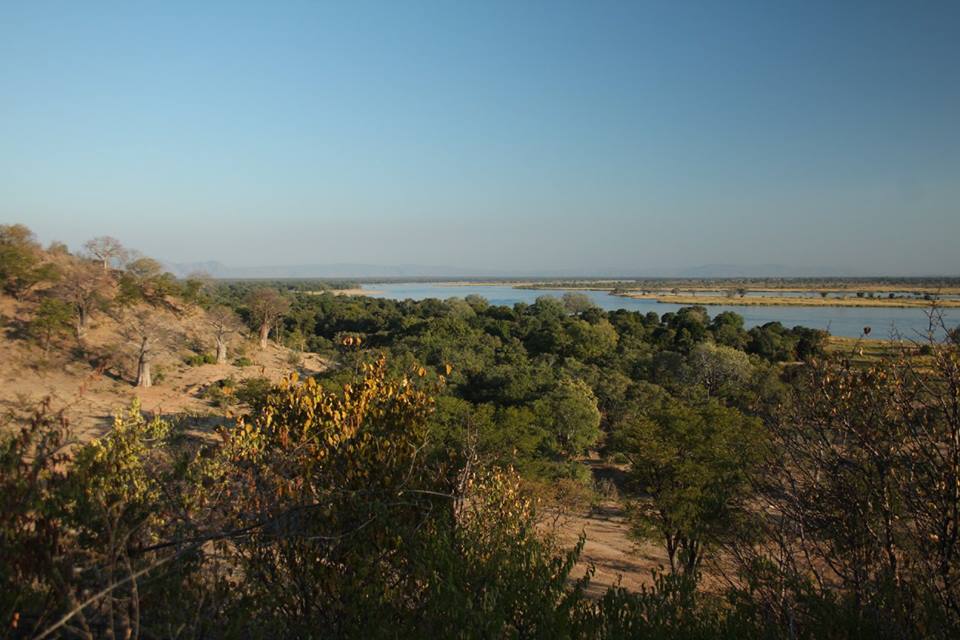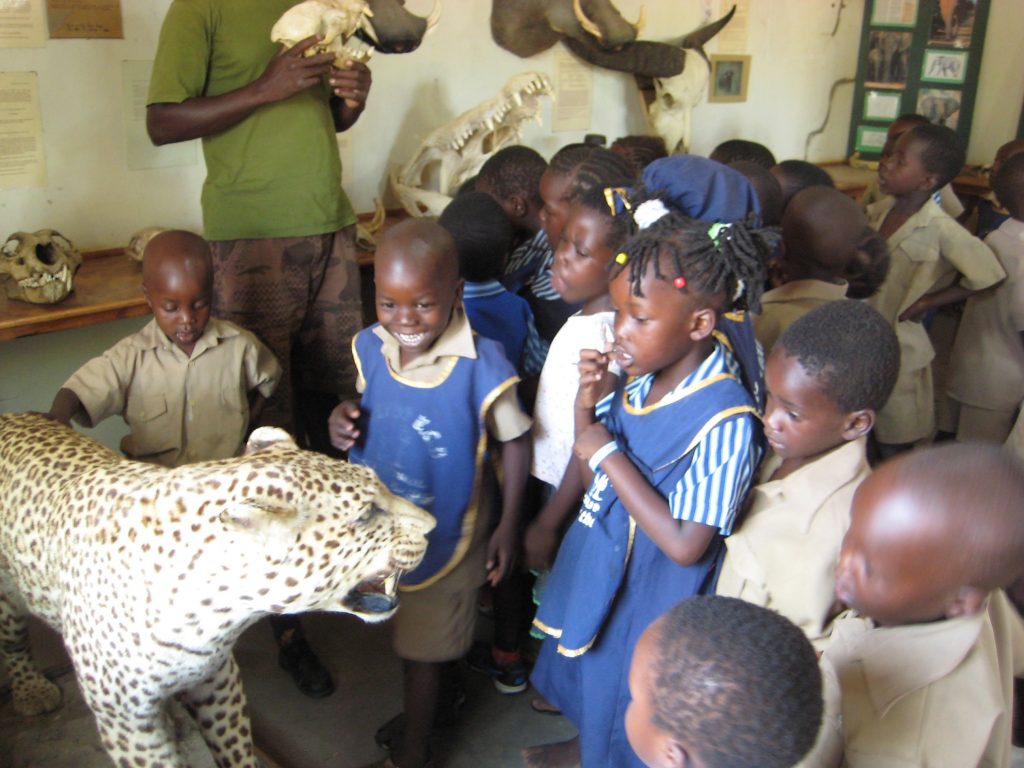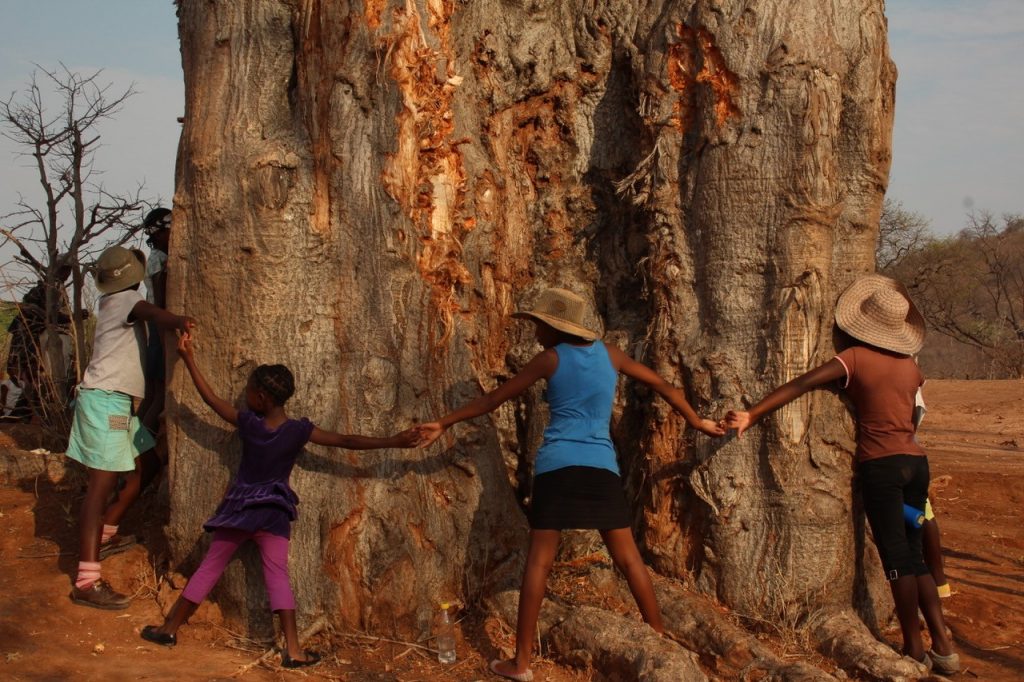Article compiled by RIFA Committee and Management Team

Rifa Conservation Education Camp (RCEC) commenced in 1982 and has been providing Conservation Education at its current location since 1988.
In 1987, Zimbabwe Parks and Wildlife Management Authority allocated RCEC a permanent home, approximately 4km upstream of Chirundu town, which is situated on the western boundary of Zimbabwe.
Over this 30-year period, somewhere in the region of 35,000 youngsters have had the opportunity to partake in a true wilderness experience, learning and understanding about the importance of preserving our wildlife and natural resources and having a lot of fun at the same time. RCEC also works with the local Chirundu community on a number of projects which include conservation education sessions and self help projects conducted at the local Rutendo school in Chirundu. As an adjunct to this, a chicken raising project and tree growing project have been established. The thinking behind these is to teach the students useful skills and thereby reduce the likelihood that they will turn to poaching, charcoal burning, and other environmentally unsustainable activities. If funding becomes available, there are plans to build a room at the school, to be used as an environmental education resource centre and also to start a fish farming project.

There is much work to be done in educating future generations in this arena and this is only going to be respected if they are taught to understand the importance of these issues, are ably motivated, capable and experienced to preserve these areas. Many modern day challenges face Wildlife and Natural Resources of different countries and Zimbabwe is no exception.
These challenges include: decreasing habitats and habitat loss mainly due to the constant expanding human population. Human wildlife conflict. Poaching of all kinds. Lack of value placed on wildlife and natural resources.

The vision is to take RCEC programmes to the local rural communities within the Hurungwe District, bordering the Zambezi valley, in order to assist and play a part in providing conservation education to those who are unable to attend the camps at RCEC.
An important aspect of the Rifa season is that each year a variety of ‘sponsored schools’ attend the camp. These are schools from the local area (Chirundu, Nyamakati and Magunje) This programme is provided free of charge and funding is essential in order for us to be able to continue with this very worthwhile cause.
Around 30 schools attend each year, with a total of between 900 and 1000 students. Most schools stay for 5 nights. Three ‘dorms’, accommodating 10 students in each, are equipped with beds, mattresses, mosquito nets, fans and lights. Teachers and parents who come to assist are accommodated in an adjacent block with 4 two-bedded rooms. 5 permanent staff are based at the camp.

Children are briefed on safety aspects as species such as elephant, lion, buffalo, leopard, hyena, hippo and crocodiles may be encountered. Impala, warthog, bushbuck and kudu may also be seen. During the field outings, the groups are accompanied by Rifa staff members, volunteers and the parks rangers carry a firearm for protection.
The object whilst they are here is to spend as much time in the field as possible. For ‘A’ level students, apart from the general wildlife experience, the emphasis is on doing field work that relates to their syllabus such as mapping, river flow velocity, erosion/deposition patterns, vegetation sampling and transects. With the primary students, the emphasis is on practical activities such as learning about termites, bush craft, fire lighting and making string from baobab bark. The field activities are mainly guided walks to various places of interest, including the Zambezi River, during which, spoor, vegetation and all aspects of wildlife are discussed.
An important part of the programme is an impala dissection followed by a vulture watch. The ZPWMA gives Rifa a quota of impala that may be harvested annually and the students can participate in a dissection. This is a rare opportunity for students to physically study the internal organs of a mammal and the ruminant digestive system. The meat may then be utilised for catering and the remains of the carcass is placed in front of the camp. Invariably a number of vultures will come in to devour the offerings which is a spectacular sight. These vultures are also monitored by camp staff for research value. This exercise gives the students a practical experience of the ‘cycle of life’ – from the soil, to vegetation, herbivores, predators, scavengers, decomposers and finally back to the soil.
The ‘Reference Block’ contains a small museum, library and laboratory. The museum has various skulls, bones, skins, head mounts, a full leopard mount, models of fish and snakes and local artefacts. This provides a wealth of material that can be used for practical lessons. The library has reference books and recent donations allowed the purchase of numerous up to date bird and tree books. The laboratory has two electronic microscopes and various types of equipment for the practical field exercises.

RIFA is not a commercial safari destination but it is possible for people to stay at the camp in between the school bookings. This is on a self-catering basis with basic equipment available. The charge is $10 pppn. Bookings are also taken for interest groups such as Birdlife Zimbabwe.
Our goal is to ensure that Zimbabwe’s valuable Wild Life and Natural Resources are here for future generations. In order to achieve this, ongoing conservation education is absolutely vital. Anyone who may be interested in assisting Rifa Conservation Education Camp can contact us on the information given below.
Office
Zimbabwe Hunters’ Association,
Mukuvisi Woodlands, Hillside Road Ext, Hillside, Harare
P. O Box HG 548, Highlands, Harare
Phone: (+263) 024 2747215 / 6
Cell: (+263) 0772 329434
Web Site: www.rifaconservation.org
Face Book: Rifa Conservation Education Camp, Zimbabwe

